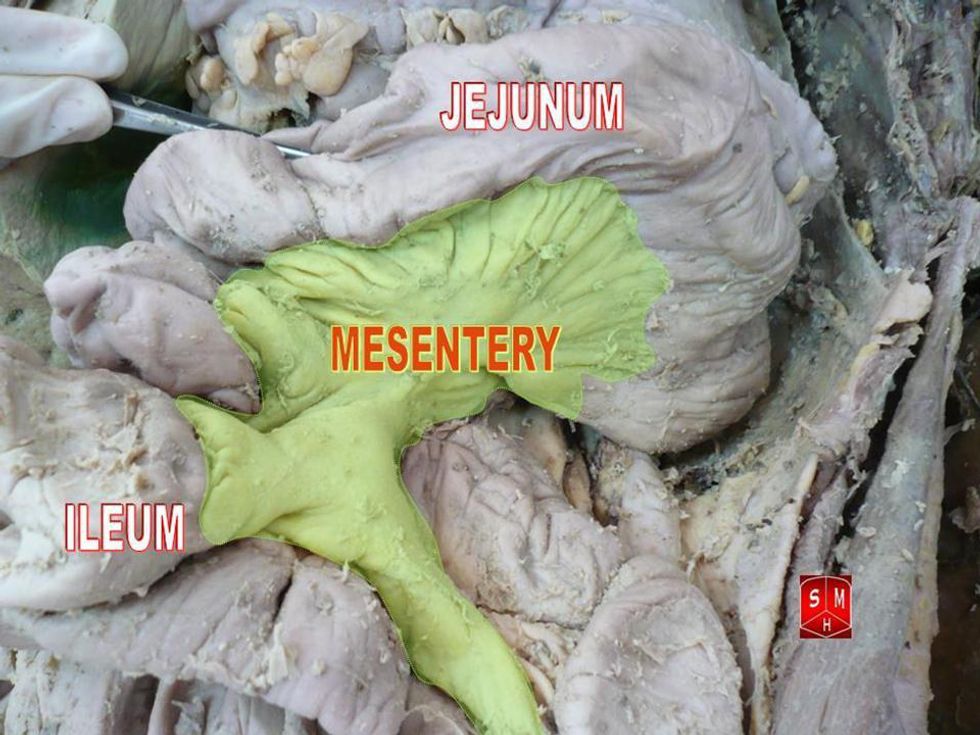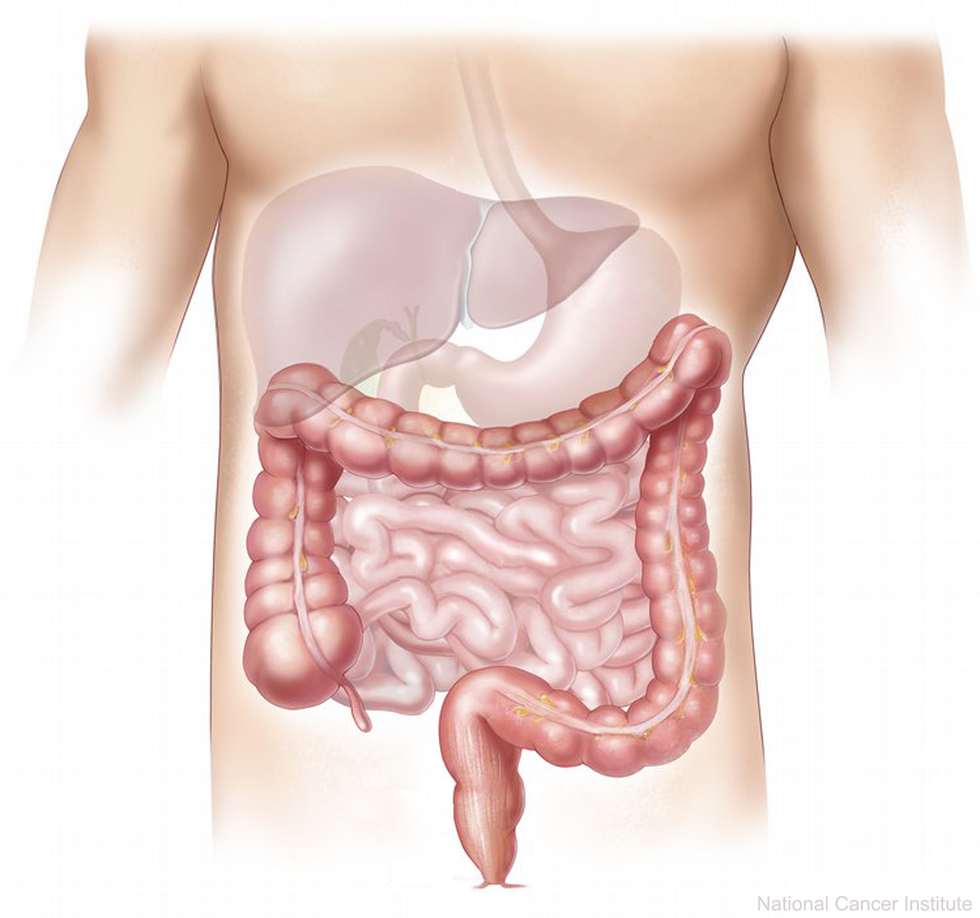A new organ was just discovered! This was pretty much my reaction minus the "That is so cool!" Oh wait, that is another organ to memorize. But still, it's really cool. The new organ is called the mesentery and it is located in your digestive system. No, someone did not just put it there. It has actually been here all along, it just got a new classification. The mesentery upgraded from tissue to organ after a recent study by the University of Limerick scientists in the Lancet Gastroenterology and Hepatology journal.

So you are probably wondering what it does and why we didn't know about it sooner. Well, we did. The mesentery was previously classified as a group of connective tissues performing vital roles in multiple systems of your body. However, scientists recently classified it as an organ, the 79th recognized human organ to be exact. The mesentery is a fold in the lining of your abdomen that suspends and attaches digestive organs to the cavity in your abdomen.
Now the only question is what does this thing do? Currently, researchers know it connects with the intestinal, vascular, endocrine, cardiovascular, and immunological systems, but the extent of this connection is still being determined.
Funny thing is people have been asking questions about the organ's function and structure since the days of Leonardo DaVinci. Some, including DaVinci, believed it to be one connected organ, but it has been officially a tissue since Sir Frederick Treves' declared it as fragmented in 1885. This was contradicted by the research of Carl Toldt from 1878. But Toldt's work was overlooked because it did not support what was found in Grey's Anatomy, which had been the standard for medical study since 1858.
The scientists from the University of Limerick believe that the mislabeling of this organ for so many centuries has lead to a crucial mistake - ignoring its role in gut diseases. Understanding this organ's anatomy, structure, and function can help aid the research and treatment of diseases like Crohn's disease.
Keep your eyes peeled for the further development of mesenteric science folks!





















